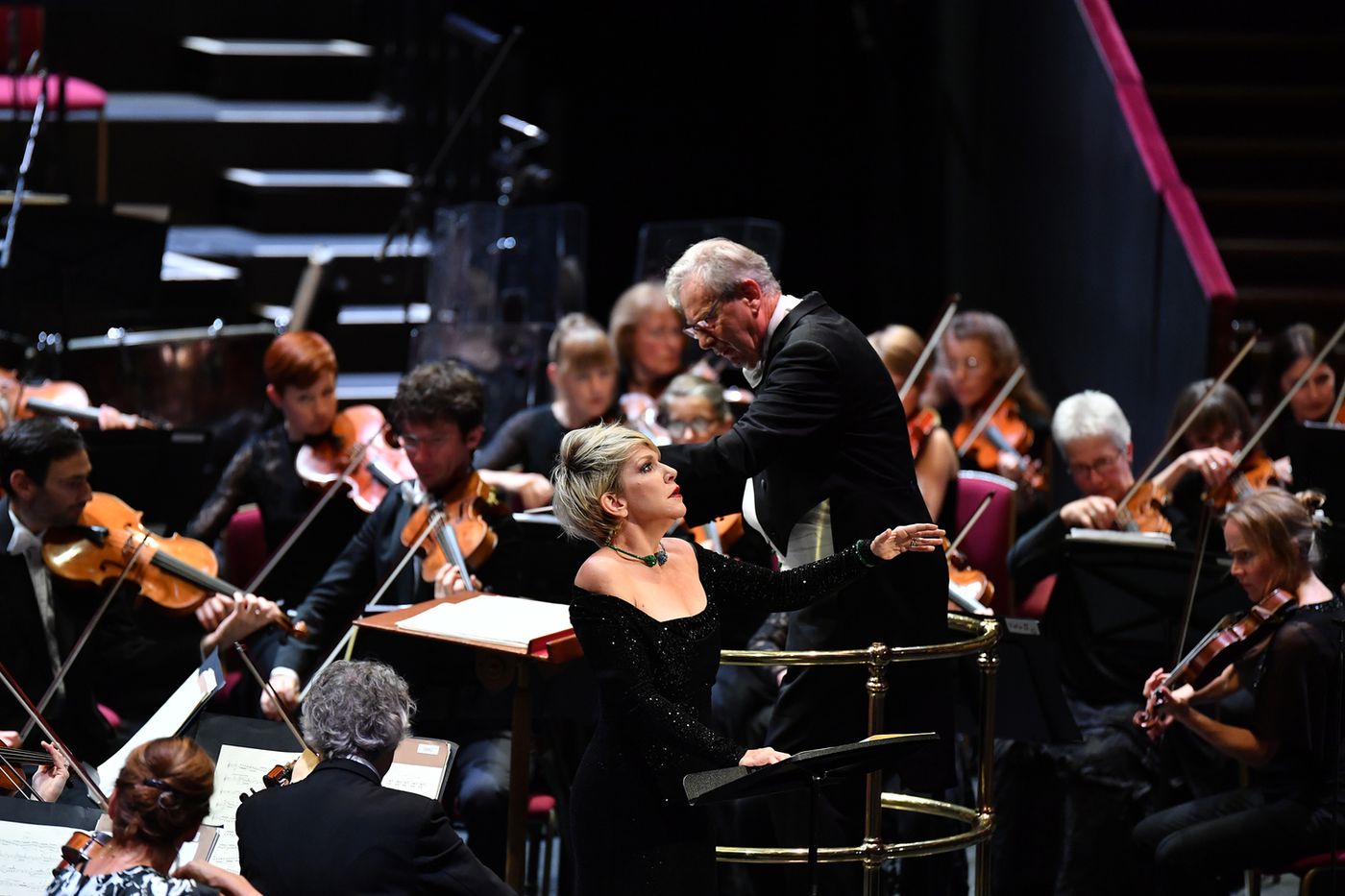Review: PROM 71: ORCHESTRE REVOLUTIONNAIRE ET ROMANTIQUE PERFORM BERLIOZ WITH JOYCE DIDONATO at Royal Albert Hall

![]() Like four-hour epic adventure films whose plots are impossible to untangle, the music of Berlioz comes in dense, intricate, copious batches; knotty nettles that are stubbornly inseparable.
Like four-hour epic adventure films whose plots are impossible to untangle, the music of Berlioz comes in dense, intricate, copious batches; knotty nettles that are stubbornly inseparable.
Abound with calligraphic loops of melodies that leave only a fading trace behind before being switched with a contrasting sequence, strong performances of it can leave the listener befuddled but immersed; weak ones, overwhelmed and maybe even deafened by a brawly orchestra.
Under the baton of Sir John Eliot Gardiner and the Orchestre Révolutionnaire et Romantique at this Prom, four of the composer's works were deftly rendered in a potent mimicry of style and rhythm. It fell short of vivifying their ebullience.
Beginning with the brief Le Corsaire overture, a sour tone on the strings was immediately palpable. While the ensemble played defiantly and jubilantly, all too often a sequential set of tumbling instruments befell the ear: an uneven entrance of brass instruments or the delayed onset of woodwind.
With the orchestra standing - for no easily guessable reason - during both this and the final movement of the Harold in Italy symphony, the ensemble emanated an allure of revelry and celebration in the confines of professional behaviour. The music that this yielded, on the other hand, offered an aura of inebriation.
Commanding the stage with the cantata La Mort de Cléopâtre ("Cleopatra's Death"), Joyce DiDonato suffused her instrument with the cavernous, brassy weightiness of the Egyptian queen's dominance, enhancing the pit of her register with propulsive and eerie vibrato.
Unwinding words such as "vaincue" ("conquered") and "déshonorée" ("dishonoured") with sly diminuendi, DiDonato delineated the queen's acrid shame before the loss she can scarcely admit: her and Mark Antony's defeat by Augustus at the Battle of Actium.
As she reminisced about past glories with the phrase "Ah! Qu'ils sont loin, ces jours" ("Ah, far gone are those days"), DiDonato not only enhanced the word "jours" ("days") with a lengthy, plaintive diminuendo, but delayed the second note with a languorous portamento symbolic of Cleopatra's compulsion to hold on to nostalgia. Similar tactics were applied to other pairs of long-held notes to manifest the queen's lengthy postponement of her journey from denial into reality.
Another ancient heroine was captured vocally in DiDonato's execution of Dido's suicide from the bombastic opera, Les Troyens. Here was another vanquished legendary queen forced to confront her conquest by the enemy: this time a sexual one. Plagued with remorse for having welcomed Aeneas and the Trojans to her land of Carthage and fallen in love with the hero, Dido pledges to kill herself.
With a tiny voice of humility DiDonato's Dido proclaimed: "Je vais... mourir..." ("I shall die"), and referred to her traitorous lover Aeneas as her "bûcher" ("butcher") with both hesitation and shock in a slow-evolving, subdued instrument.
Exhaustion from Dido's ordeal was discernible in her wearied approach to the words "Inutile prière" ("Futile prayer"), where a tapering portamento made the second word sound like the heroine's fast-dropping strength. Parting with her land was bitter sorrow as Dido bade farewell to Carthage and its stars ("Adieu beau ciel d'Afrique, astres que j'admirai"), and DiDonato fashioned her voice so that it shrunk into near-nothingness with sustained reticence; stayed surrender.
Across these works the orchestra, though succumbing to changes in tempo and dynamics, was still rife with unevenness: brass's blown raspberries or other anomalous sounds that stuck out like a haphazard wire. Subjugating the night's symphony to a rigid andante pace, Gardiner took Harold in Italy's sudden crescendi and abrupt changes in tempo to pompous heights, making the erroneous sections sound somewhat rambunctious.
At the same time, the stylistic approach lacked both daring and the customary rubato applied to such shamelessly Romantic, temerarious pieces. There were sections when the speed was so continuously steady that the galloping of horses might have sounded more spontaneous.
Solo violist Antoine Tamestit paraded on the concert platform as he played, changing the acoustics of his execution with the use of different angles. Effusing some soothing lullaby-like diminuendi and largely Haydn-like, classical rhythms, his musical embodiment could have been craftier and a little more sinuous - as opposed to his own walking body, which was more daring in movement, but quite purposelessly.
It was an evening of contrasts: orchestral disarray and sleek vocal composure. And, while Berlioz's themes tend to diverge from each other - embarking on unforeseen, untrodden paths - disparities that featured in this concert didn't boast the rich gamut of variances the listener could have craved.
Photo credit: Chris Christodoulou
Reader Reviews
Videos

